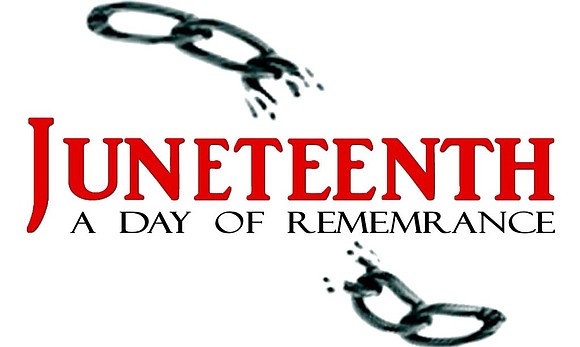The History of Juneteenth
Style Magazine Newswire | 6/15/2018, 9:10 a.m.
How many people know the actual history behind the Juneteenth holiday? Sadly, through no fault of their own, many of today’s children. It is not taught in schools and some of their parents don’t even know. For those of who do why Texas was last to hear the news that slaves were free, we have a responsibility to ensure this history does not die with us but is passed on. Here is a brief history of the story of Juneteenth. Read it and pass on the knowledge.
Later attempts to explain this two and a half year delay in the receipt of this important news have yielded several versions that have been handed down through the years. Often told is the story of a messenger who was murdered on his way to Texas with the news of freedom. Another is that the news was deliberately withheld by the enslavers to maintain the labor force on the plantations. And still another is that federal troops actually waited for the slave owners to reap the benefits of one last cotton harvest before going to Texas to enforce the Emancipation Proclamation. All of which, or neither of these version could be true. Certainly, for some, President Lincoln's authority over the rebellious states was in question For whatever the reasons, conditions in Texas remained status quo well beyond what was statutory.
General Order Number 3One of General Granger’s first orders of business was to read to the people of Texas, General Order Number 3 which began most significantly with: "The people of Texas are informed that in accordance with a Proclamation from the Executive of the United States, all slaves are free. This involves an absolute equality of rights and rights of property between former masters and slaves, and the connection heretofore existing between them becomes that between employer and free laborer."
The reactions to this profound news ranged from pure shock to immediate jubilation. While many lingered to learn of this new employer to employee relationship, many left before these offers were completely off the lips of their former 'masters' - attesting to the varying conditions on the plantations and the realization of freedom. Even with nowhere to go, many felt that leaving the plantation would be their first grasp of freedom. North was a logical destination and for many, it represented true freedom, while the desire to reach family members in neighboring states drove the some into Louisiana, Arkansas, and Oklahoma. Settling into these new areas as free men and women brought on new realities and the challenges of establishing a heretofore non-existent status for black people in America.
Recounting the memories of that great day in June of 1865 and its festivities would serve as motivation as well as a release from the growing pressures encountered in their new territory. The celebration of June 19th was coined "Juneteenth" and grew with more participation from descendants. The Juneteenth celebration was a time for reassuring each other, for praying and for gathering remaining family members. Juneteenth continued to be highly revered in Texas decades later, with many former slaves and descendants making an annual pilgrimage back to Galveston on this date.
How Juneteenth became an official holiday
Nine years ago, the Texas Emancipation Juneteenth Cultural & Historical Commission unanimously elected Rep. Al Edwards as Chairman of the Juneteenth Commission. Chairman Edwards has been the only chairman in the history of the commission. Why? He is the “father” of Juneteenth.
In 1980, Texas was the first state to establish Juneteenth as a state holiday under legislation introduced by freshman Democratic state representative Al Edwards. By 2008, nearly half of US states observed the holiday as a ceremonial observance. As of May 2016, when the Maryland legislature approved official recognition of the holiday, 45 of the 50 U.S. states and the District of Columbia have recognized Juneteenth as either a state holiday or ceremonial holiday, a day of observance. States that do not recognize it are Hawaii, Montana, New Hampshire, North Dakota and South Dakota.
In 1996, the first legislation to recognize "Juneteenth Independence Day" was introduced in the U.S. House of Representatives, H.J. Res. 195, sponsored by Barbara-Rose Collins (D-MI). In 1997, Congress recognized the day through Senate Joint Resolution 11 and House Joint Resolution 56. In 2013, the U.S. Senate passed Senate Resolution 175, acknowledging Lula Briggs Galloway (late president of the National Association of Juneteenth Lineage) who "successfully worked to bring national recognition to Juneteenth Independence Day", and the continued leadership of the National Juneteenth Observance Foundation. In 2018, Apple added Juneteenth to its calendars in iOS under official US holidays.
en.wikipedia.org served as a source for this story.






